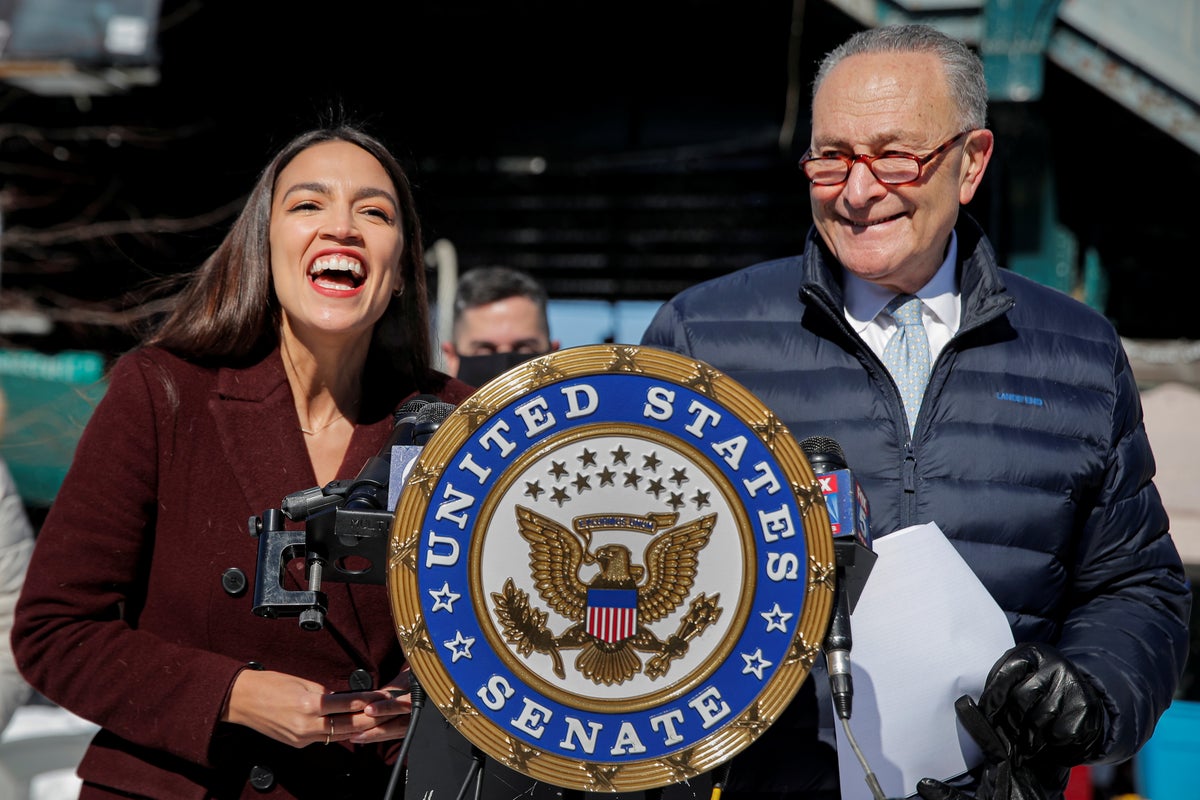
The collapse in youth support for the Democratic Party was one of several factors that brought it a crushing defeat in 2024.
A series of wedge issues drove apart the Democrats’ base last year as Donald Trump completed his political comeback journey: independents soured on the economy, which remained stable but with persistent inflation putting strain on families and housing prices driving more and more Americans into housing insecurity than ever before.
Joe Biden’s age-related issues and the perception of a cover-up by his close aides and advisers fed a perception of dishonesty. Israel’s U.S.-backed military campaign in Gaza horrified many, especially on college campuses which became hotbeds of politcal demonstration and targets for recriminations by pro-Israel groups in response.
So how does the party rebuild trust and rebuild bridges with an important part of its voting coalition?
One organization speaking with college voters in Pennsylvania this year says its has the answer — if Democrats are up for the challenge.
Project 26 Pennsylvania released survey data on Monday revealing how many younger Americans craving meaningful change in their communities are turning their attention to local races as they lose faith in national elected leaders, while desiring ways for real effective political change at the national level that produces tangible results.
In short, the answer to young Democratic voter disaffection is to put forward positive visions — and then actually make those visions a reality.
“This isn’t a story of apathy, it’s a story of credibility and outcomes,” Connie Miller, Project 26 Pennsylvania’s founder, told The Independent. “We don’t have to over complicate it: Gen Z students are deeply concerned about issues like economic security, democracy and rights rollbacks.
“They’re not looking for entertainment or empty slogans. They want proof their engagement delivers real results,” Miller said.
In the survey responses taken from 2,800 conversations with college-aged voters across the state, an overwhelming majority (75.09 percent) of those younger Americans said they didn’t believe elected political leaders make decisions “for the best interest of young people.” Just 2 percent said they believed that, in general, elected officials had young people’s best interests in mind.
Seven in 10 younger voters told the group that they are looking to “local communities and peer support networks” as sources of hope for a more positive future, rather than national political institutions (54.3 percent) or faith in technological innovation, which just 22 percent of younger voters identified as their primary source of optimism for the future.
The data also gave hints as to why younger Americans are choosing to turn locally as they look for outlets for positive change: they don’t see their own engagement in political life as having a meaningful difference — a belief which comes after younger Democrats spent much of 2024 pressuring the Biden White House to moderate its unequivocal support for Israel, largely without success.
In 2025, Democrats are facing a related, if more pronounced, divide between the party’s base and its leadership, the latter of which begrudgingly came to support using a government shutdown as leverage against the Trump administration and congressional Republicans — after publicly refusing to do the same in April.
Of the shutdown fight, Miller added: “Whatever the shutdown strategy is, Gen-Z is eager to see Democrats go on the offensive to fix bad governance and stand up for their cost of living.”
The one assumption the study handily rebukes is the label apathy (or outright laziness) typically applied to college voters, stretching back to when millennials were still college-aged.
More than half of survey respondents explained that the most effective factor to motivate their personal political engagement would be a sense that their involvement would actually be meaningful. The response handily surpassed other means typically employed to attract voters still seen as kids by many adults — like “safety from repercussions”, a sense of “fun”, or even if they felt the issue impacted them personally.
It’s a finding that would seem self-explanatory were it not for past failures by Democrats to appeal to young voters: “Pokémon Go to the polls” and Harris’s appearance on Call Her Daddy, for starters.
“I think there can be a little bit of talking past with Gen Z,” Miller said. “We have core assumptions about what are the most important things to talk to Gen Z about, you know: it’s climate change, it’s abortion.”
“And those are important to them, but they’re telling us, you know, the thing that would fix my life tomorrow would be if things were less expensive, would be if I wasn’t afraid that, you know, my internship would be gone this summer if I wasn’t worried about having fewer civil rights than my grandparents had.”
